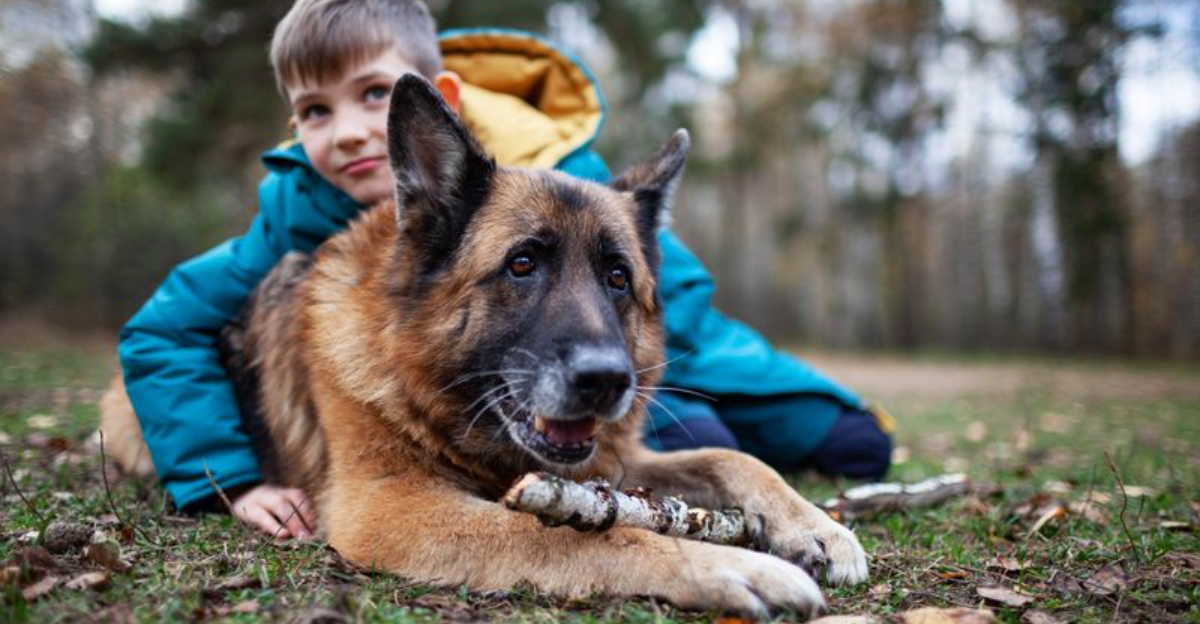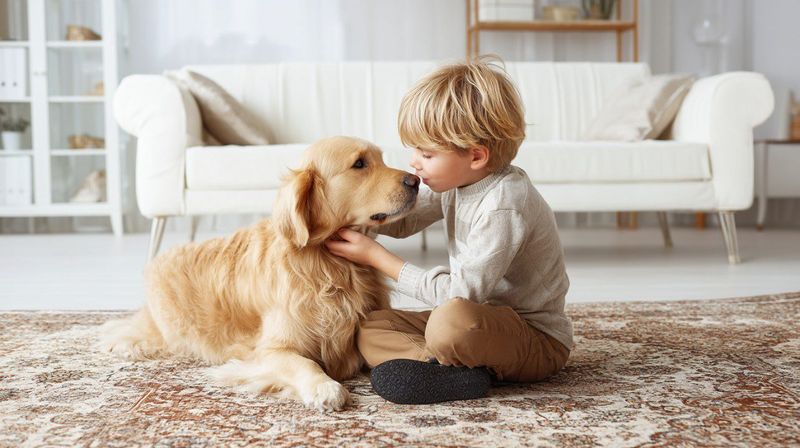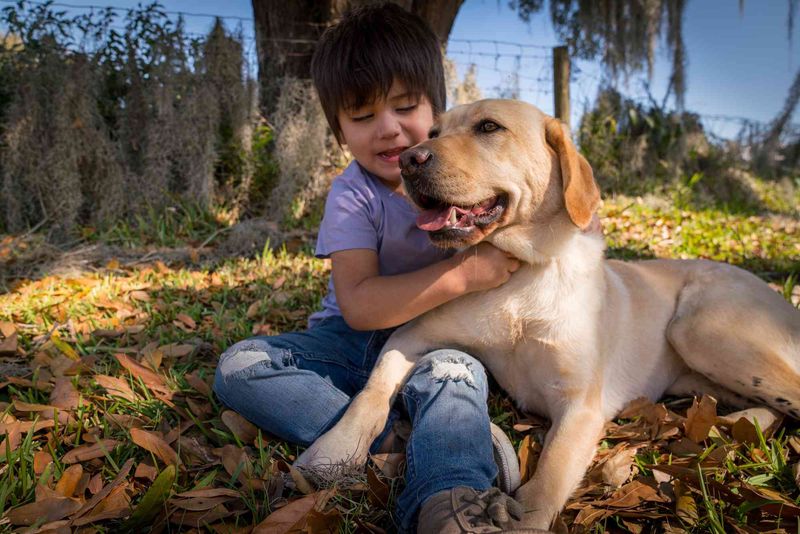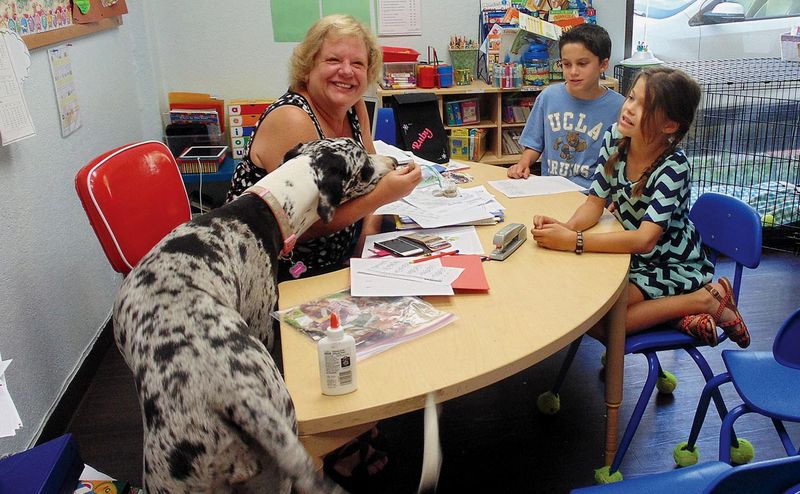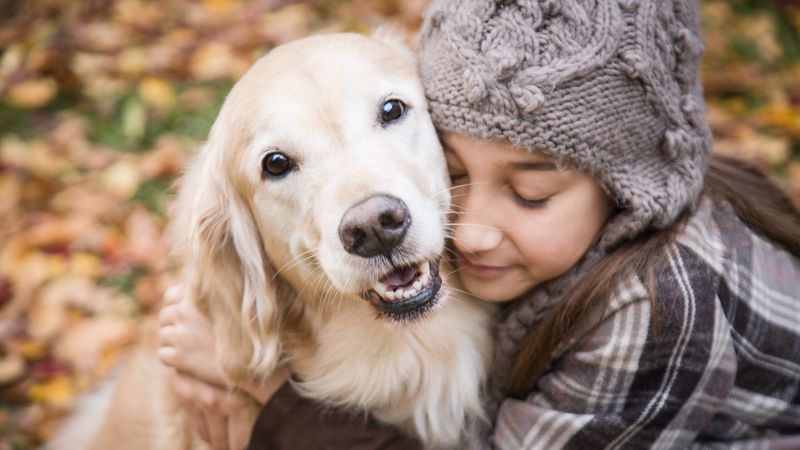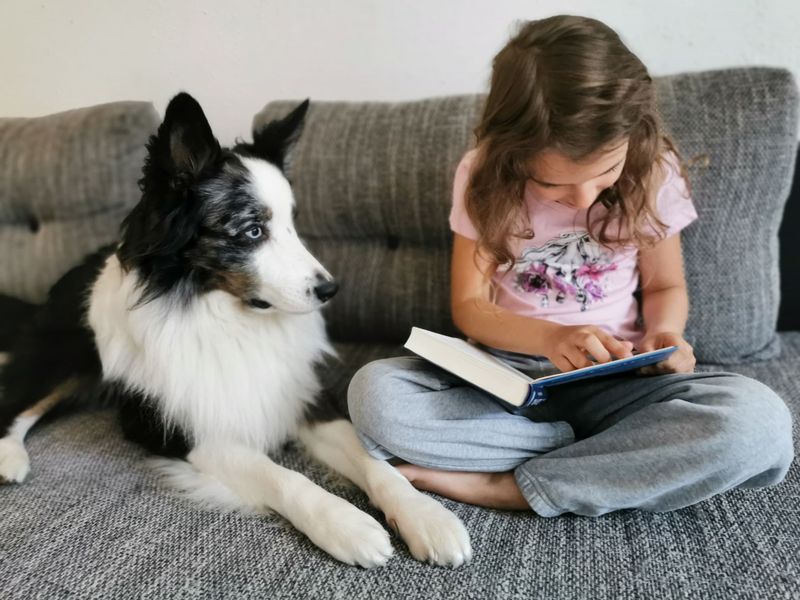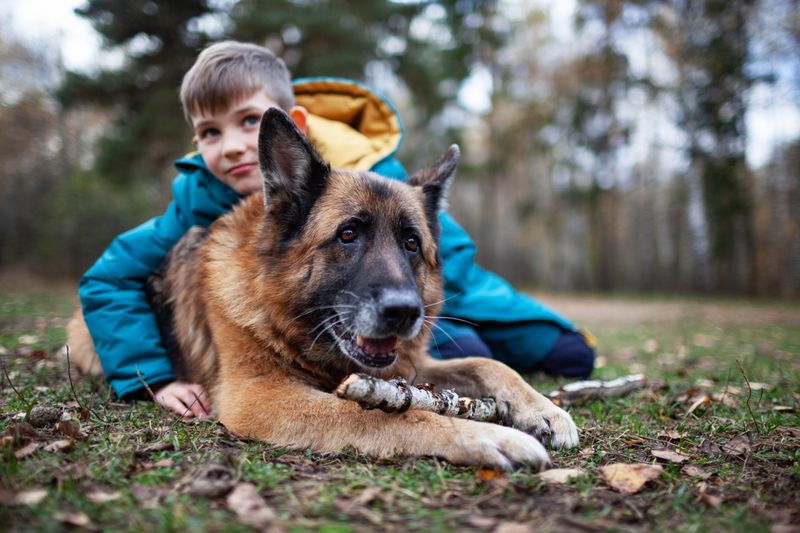Dogs have been man’s best friend for centuries, offering companionship, security, and love. When it comes to children, these loyal animals provide even more benefits, fostering growth, empathy, and happiness. Here are ten compelling reasons why every child should grow up with a dog by their side.
Unwavering Friendship
Every child dreams of having a friend who never judges, always listens, and stays forever. Dogs offer this pure, unwavering companionship. Whether it’s a rainy day or a sunny afternoon, a dog is there, tail wagging, ready to play or snuggle.
Their silent understanding and constant presence provide emotional security, making children feel valued and loved. It’s a bond that nurtures trust and understanding, essential qualities in developing relationships.
With their loyal friendship, dogs teach children the significance of loyalty and compassion, two traits that are crucial in life.
Encourages Responsibility
Taking care of a dog instills a sense of duty in children. Feeding, grooming, and walking the family pet are tasks that require consistency and care, teaching children to be responsible caregivers.
These daily routines help kids understand the importance of obligations. They learn that their actions directly impact their furry friend’s well-being.
This responsibility also boosts their confidence as they see the positive effects of their care, guiding them to become empathetic, organized, and reliable individuals.
Boosts Physical Activity
Dogs are natural motivators for physical activity. Their endless energy encourages children to put down gadgets and run outside. Whether playing fetch, going for walks, or simply exploring nature, kids stay active.
This regular physical engagement improves overall fitness while burning off energy in healthy ways. Moreover, it contributes to better weight management and a lower risk of childhood obesity.
With a dog in tow, exercise becomes an enjoyable routine rather than a chore, promoting a healthier lifestyle for growing bodies.
Improves Social Skills
Dogs act as social bridges for children. Walking a dog in the neighborhood or visiting a park opens up opportunities for social interaction. Kids naturally draw others in with a friendly dog by their side.
These interactions help children develop communication skills, learn to make friends, and engage in cooperative play. Conversations about their pet can spark connections, reducing social anxieties.
Overall, dogs help shy children break out of their shells, teaching them to connect with peers and build lasting friendships.
Teaches Empathy and Compassion
Living with a dog encourages children to understand and respond to the needs of another being. Observing a dog’s emotions fosters empathy, teaching kids to recognize and soothe distress.
Children learn the nuances of animal behavior, which translates to better understanding human emotions as well. This nurturing environment cultivates compassionate hearts.
As they care for their pets, children develop a deeper sense of empathy, paving the way for kind, considerate interactions with others throughout life.
Provides Emotional Support
In times of stress or sadness, a dog provides comforting solace. Their presence can ease anxiety, offering a warm cuddle that reassures and calms.
Children find solace in their dog’s unconditional love. This bond serves as an emotional anchor, comforting them during difficult moments.
Dogs teach resilience, showing how to weather emotional storms with grace. This relationship offers children a safe space to express feelings, helping them navigate the complexities of growing up.
Enhances Learning Abilities
Dogs can enhance a child’s learning abilities. Reading to a dog, for instance, provides a non-judgmental audience, boosting confidence in reading skills.
This practice encourages language development and improves literacy. Dogs’ attentive nature makes children feel supported, reinforcing positive learning experiences.
Additionally, caring for a pet involves practical math and logic skills, such as measuring food portions and scheduling activities, contributing to cognitive growth.
Builds Immunity
Studies suggest that children raised with dogs have stronger immune systems. Exposure to pet dander and outdoor play reduces the risk of allergies and asthma.
The microbes dogs carry introduce beneficial bacteria into the household, building a child’s resilience to common infections. This early exposure helps develop a robust immune system.
Ultimately, growing up with a dog not only provides companionship but also contributes to better health and fewer sick days.
Instills a Sense of Security
Dogs have an innate ability to protect. Their presence alone can make a child feel safer, offering reassurance during nighttime fears or when home alone.
This sense of security extends beyond the physical. Knowing a loyal friend is always near reduces anxiety and promotes peace of mind.
Having a dog teaches children about protection and loyalty, weaving these values into their understanding of friendships and relationships.
Encourages Creativity and Imagination
Dogs inspire creativity and imagination in children. Engaging in pretend play, children often include their pets in imaginative scenarios, from space adventures to royal quests.
This playful interaction stimulates cognitive development, enhancing problem-solving skills and creativity. The presence of a dog encourages open-minded thinking and innovative play.
Inspired by their pets, children learn to think outside the box, creating stories and games that foster imaginative growth.
